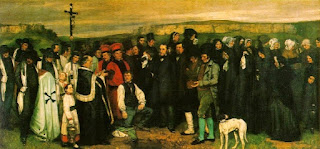WHAT IS REALISM
REALISM
INTRODUCTION
From the past to the present, many currents of ideas have been put forward. One of them is realism. Although the use of "ism" in philosophy seems to be a thing of the past, it still continues to be used. We can use the word realism as an example. As time went on, more and more philosophers started talking about realism, but little is known about what realism exactly is. ‘’When they argue for their position, realists typically argue against some version of idealism-in our time, this would be Positivism or Operationalism. (This is not in itself surprising-all philosophers attempt to shift the burden of proof to their opponents. And if one’s opponent has the burden of proof, to dispose of his arguments seems a sufficient defence of one’s own position.) And the typical realist argument against Idealism is that it makes the success of science a miracle (PUTNAM, 1975-1976) .
POLITICAL REALISM
In the discipline of politics, there are philosophies that contradict or support each other. Since the concept of realism also means political realism, it can explain the conflicting and competitive aspect of politics. Political realism often contrasted with liberalism or idealism. This contrast emerged after the first world war and completely separated after the second world war. The "Great Depression" experienced after 1930 and the efforts of the states that lost the first world war to change the political balance began to disintegrate the international system. Since the concept of idealism is more peaceful, it has lost its communication and started to be questioned by states that have adopted a warlike policy. The states' adoption of this warlike and brutal policy and the failure of the League of Nations did not to find solutions to international problems has accelerated the separation of states from the idealism philosophy that advocates national institutionalization. With the start of the second world war, power relations came to the fore, and this contributed to the rapid development of realism. According to the principles determined by this movement, basically, the essence of human nature is selfishness, beings who act with the greed for power and power and pursue their own interests. Nations, like individuals, seek self-interest (UĞRASIZ, 2003)
The realist perspective may be based on provable theory and systematic hypotheses, but unlike this, political realism is considered an attitude towards the human condition. This means that political realism consists of moral values and human possibilities. In summary, political realism is not systematic, but more ordinary. Realists emphasize that power is at the forefront of political things in the world. According to them, if this is forgotten, all moral plans are in vain. Another viewpoint of realism is that political realism is a group work. According to Robert G. Gilpin, conflict groups form the basis of political life
CLASSİCAL REALISM
to classical realism that emerged after the 1940s, the state reflects the bad, selfish and self-seeking sides of the human being. The most important factor for the state is that in this world where no one can be trusted, states have to look after their interests and act accordingly. According to classical realists, moral and legal rules are ignored when the issue of interest arises. The main reason for this is that there is no universal power that regulates the behaviour of states. It is known that the basis of the concept of realism is the power race of states. In this direction, the concept of classical realism says that the purpose of states is to reach maximum power. In addition, ıt underlines that this power competition causes bilateral trust problems and can eliminate all kinds of risks that will upset the balance of power of the states.
NEOCLASSİCAL REALİSM
Neoclassical realism presents a realistic and holistic view of foreign policy. According to this point of view, the pressure exerted by the international system on states plays an important role in the states' strategy formation, especially realistically. In this way, states can develop different strategies from each other. The reason for the emergence of neoclassical realism is that Waltz's neorealism (RITTBERGER, 2022) fails to explain the post-Cold War situation. Kenneth Waltz argues that in order to understand international politics, we must understand the nature of the international system (RIPSMAN, NEOCLASSICAL REALİSM, 2011) .
The concept of realism is a current of ideas that is widely adopted in politics and applied by states. It has enabled the concept of power to be interpreted in different ways. When power is mentioned, only physical or military power comes to mind, but realist commentators have interpreted this concept in many ways. While some realists argued that power was a deterrent policy, others argued that power was the main factor. In other words, realism has brought very different perspectives to the concept of power. The fact that the theory of realism has more than one political subheading proves that it is a really solid theory and thought over.
BİBLİOGRAPHY
ÇETİN, A. V. (2009, HAZİRAN 01). LİBERALİZM. DERGİPARK, s. 197-224.
GILPIN, R. G. (1984, MARCH). THE RICHNESS OF THE TRADITION OF POLITICAL REALISM. s. 287-304.
KİRAZ, S. (2020). BİR DIŞ POLİTİKA ANALİZİ OLARAK NEOKLASİK REALİZMİN İNCELENMESİ. 665-686.
MEHMET KEYİK, M. S. (2019, MAYIS 24). REALİZME GÖRE GÜÇ VE GÜÇ DENGESİ KAYNAKLARI. s. 38.
PRİNZ, J. (2017). POLITICAL REALISM AS IDEOLOGY CRITIQUE. E. ROSSİ içinde, CRİTİCAL REVİEW OF INTERNSTIONAL SOCIAL AND POLITICAL PHILOSOPHY (s. 348-365). INFORMA UK LİMİTED, TRADING AS TAYLOR &FRANCIS GROUP.
PUTNAM, H. (1975-1976). WHAT IS REALİSM. ARISTOTELIAN SOCİETY (s. 18). içinde OXFORD UNIVERSITY PRESS.
RIPSMAN, N. M. (2011, JUNE 13). NEOCLASSICAL REALİSM.
RITTBERGER, V. (2022). GERMAN FOREIGN POLICY SINCE UNIFICATION: THEORIES AND CASE STUDİES.
SÖNMEZ, V. (1798-1857). AUGUSTE COMTE (olguculuk).
ŞERİFE YİRMİBEŞOĞLU, F. Y. (2018). ULUSLARARASI TİCARET BAĞLAMINDA KLASİK REALİZM. AKSOS DERGİSİ 3. SAYI, 115-120.
UĞRASIZ, B. (2003). ULUSLARASI İLİŞKİLERDE İKİ FARKLI YAKLAŞIM. s. 7.





Yorumlar
Yorum Gönder